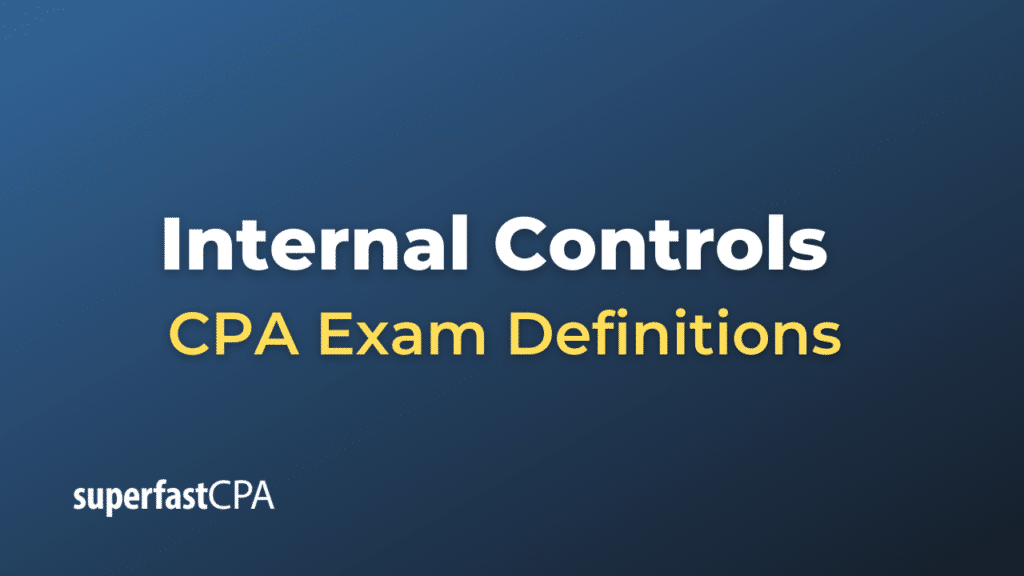Internal Controls
Internal controls in accounting are the policies, procedures, and mechanisms implemented by an organization to ensure the accuracy, reliability, and integrity of its financial information, safeguard its assets, and promote operational efficiency. These controls help to prevent and detect errors, fraud, and inefficiencies within the organization’s financial processes.
Key elements of internal controls in accounting include:
- Segregation of duties: Assigning different tasks related to financial transactions to different individuals to minimize the risk of errors or fraud. This could involve separating the responsibilities for authorization, recording, and custody of assets.
- Authorization and approval: Ensuring that financial transactions are authorized by the appropriate individuals within the organization, based on their level of authority and responsibility.
- Physical controls: Safeguarding assets through restricted access, security measures, and proper storage. This includes keeping cash in a safe or using locks and alarm systems to protect inventory and equipment.
- Reconciliation and review: Regularly comparing recorded financial information with supporting documents or independent sources to identify and resolve discrepancies. This may include reconciling bank statements, reviewing journal entries, or analyzing financial reports.
- Documentation and record-keeping: Maintaining accurate, complete, and organized records of financial transactions to facilitate the efficient retrieval of information and to support decision-making processes.
- Personnel policies: Hiring qualified personnel, providing them with appropriate training, and periodically evaluating their performance to ensure that they have the necessary skills and knowledge to carry out their duties effectively.
- Monitoring and assessment: Periodically reviewing the effectiveness of internal controls and updating them as necessary to address changes in the organization’s operations or environment.
By implementing a robust system of internal controls, an organization can minimize the risk of financial mismanagement, maintain the accuracy of its financial statements, and ensure compliance with applicable laws and regulations.













